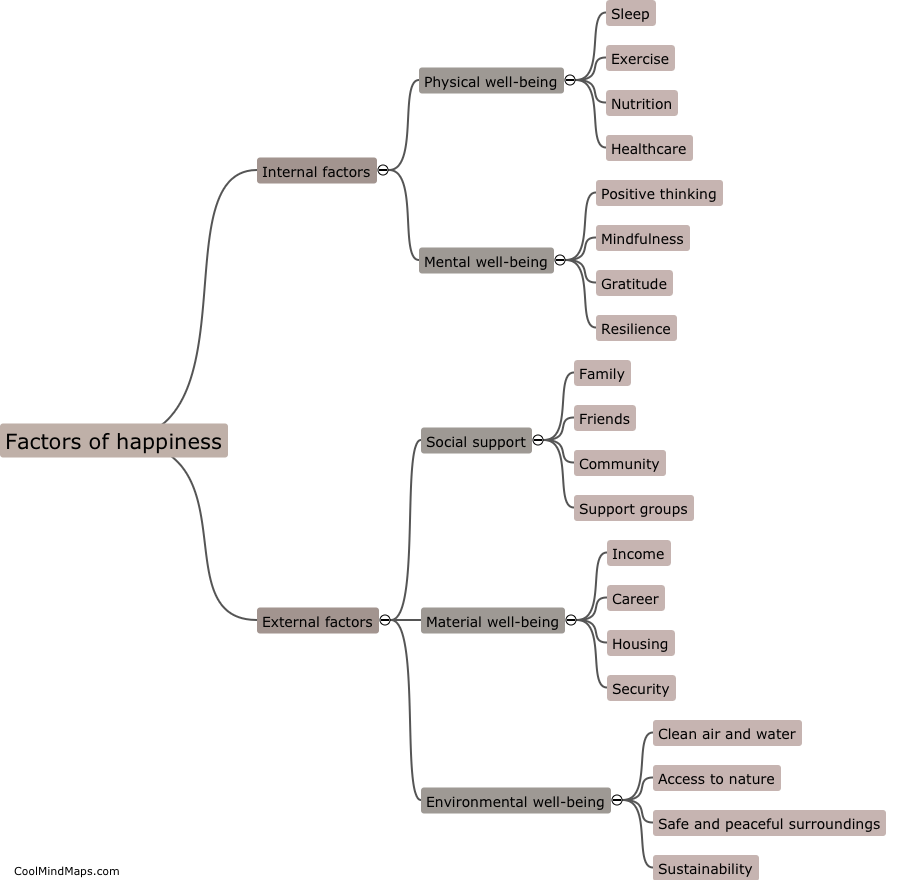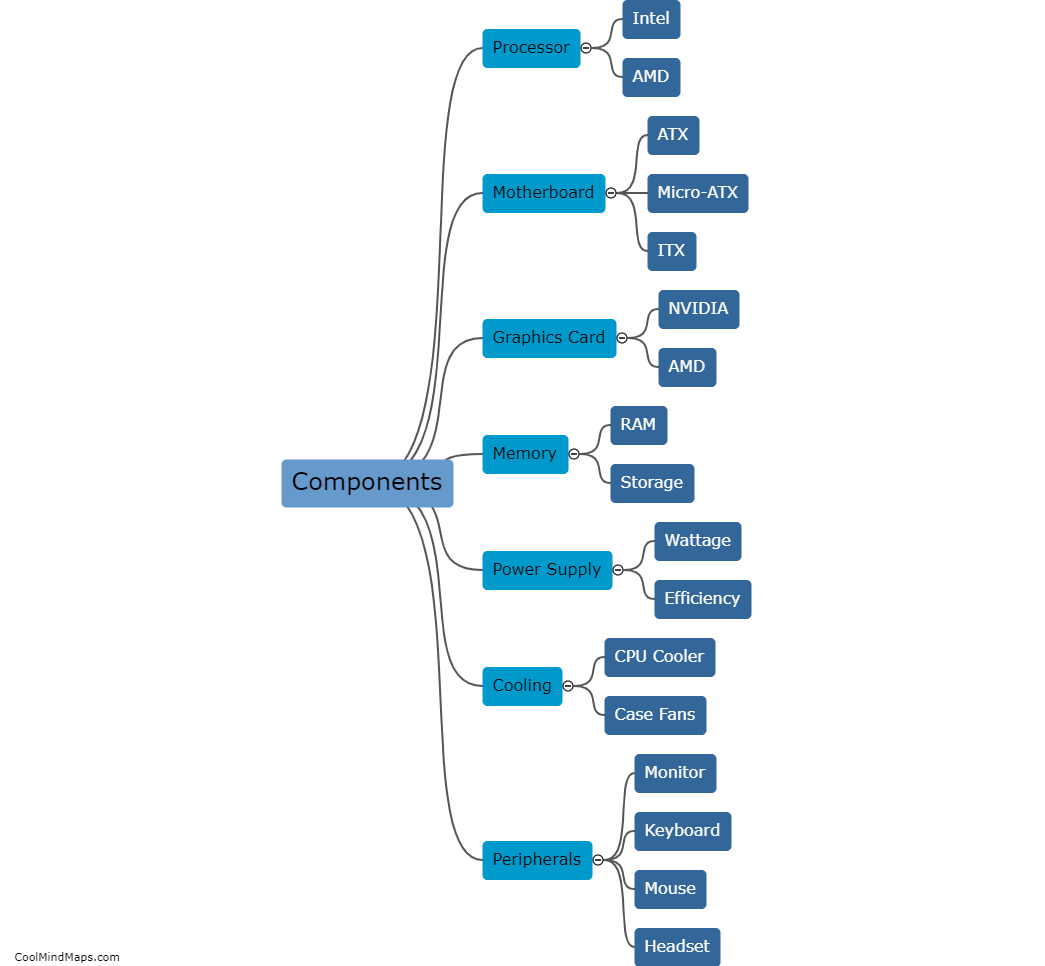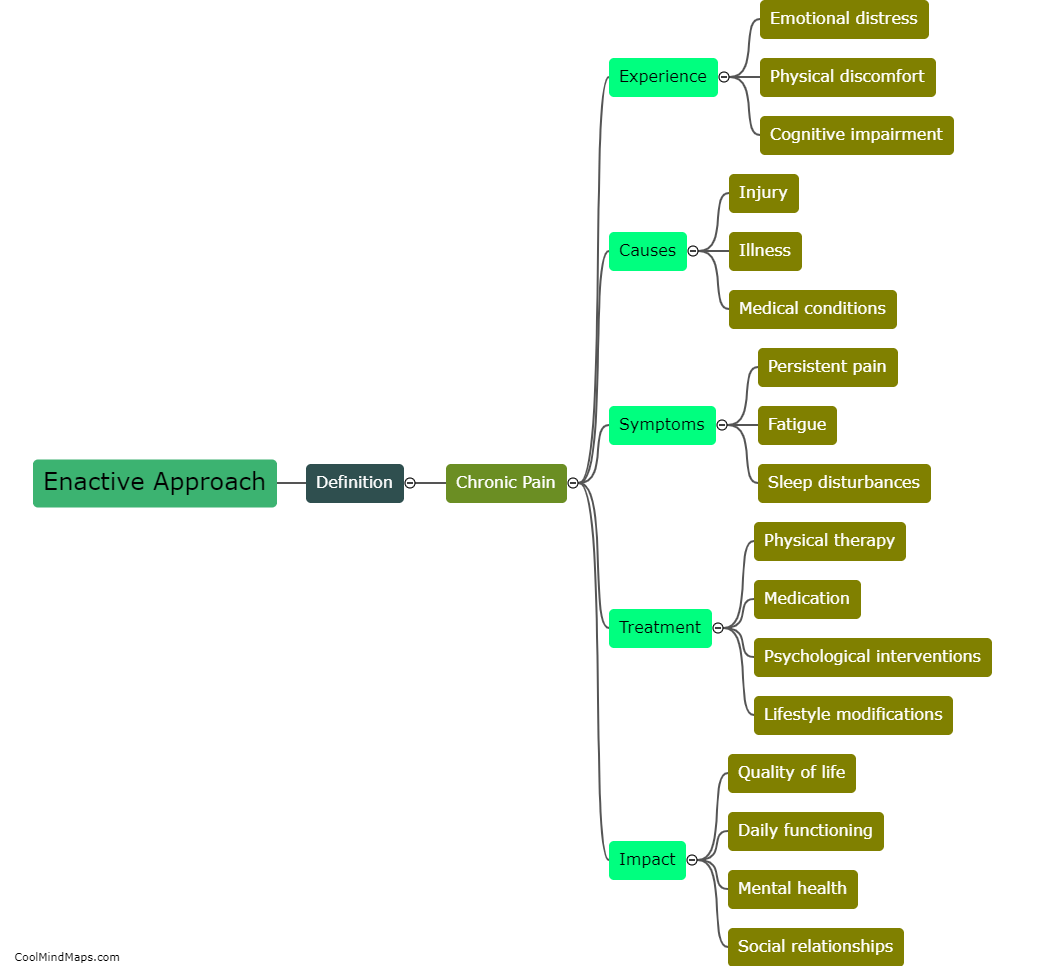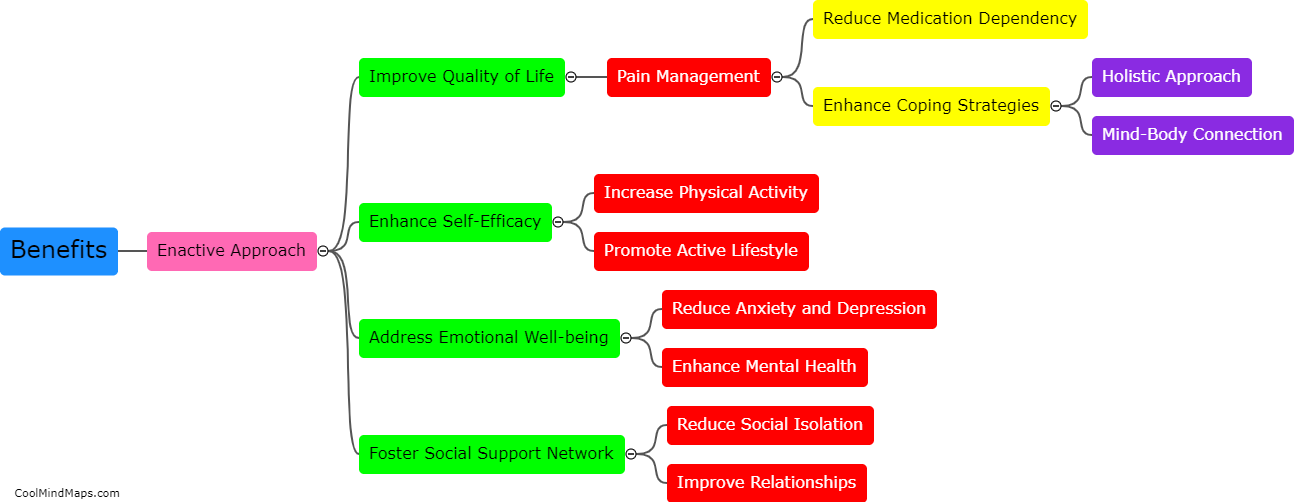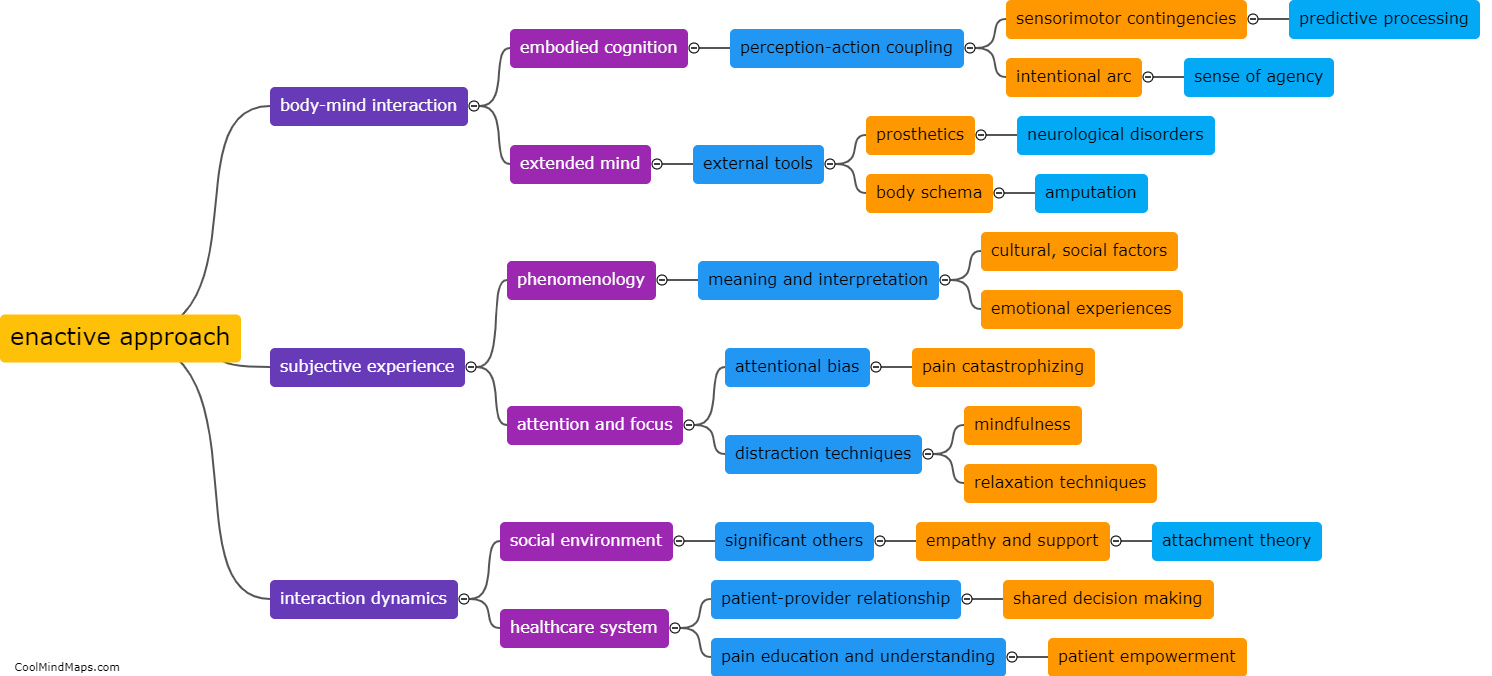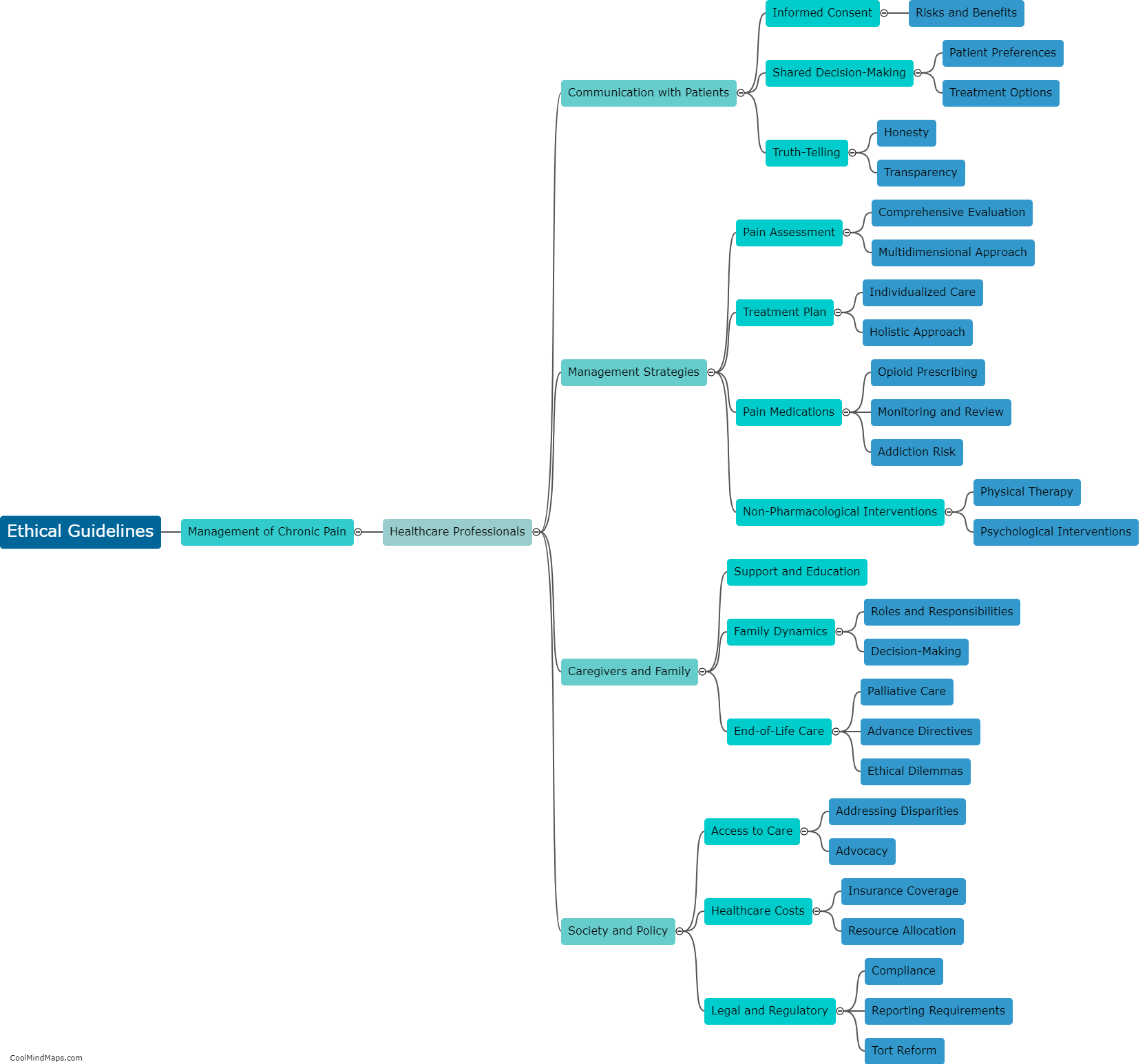How do healthcare professionals navigate ethical dilemmas in chronic pain management?
Healthcare professionals often face ethical dilemmas when managing chronic pain due to multiple factors that need to be considered. One key aspect is balancing the need to provide adequate pain management for patients while avoiding potential risks of addiction and misuse of opioids. They must also consider the principles of autonomy, beneficence, and non-maleficence when making decisions regarding pain management strategies. Furthermore, healthcare professionals need to address the challenge of determining the legitimacy of patients' pain and ensuring their treatment aligns with evidence-based practices. Collaborative decision-making, open communication, and regularly reassessing pain management plans are essential strategies for navigating these ethical dilemmas.

This mind map was published on 2 December 2023 and has been viewed 103 times.

